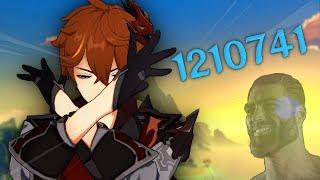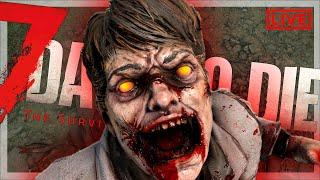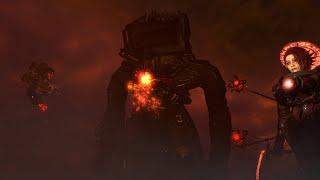Комментарии:

It's good to look out for the casuals, but that doesn't mean the more hardcore crowd should be outright ignored either. And they have a lot of sway when it comes to shaping habits of other players. Furthermore: Elk claims we're culturally accustomed to a 10 point system. But nobody takes it seriously. At least with brackets, even of only one or two brackets ever get used, that's still less embarrassing than every deck being a 7.
Ответить
It would be funny if it was 5 “brackets” cause I imagine most people would say they have a bracket 3 deck, cause bracket 4 and 5 is high power and “cedh” but bracket 1 and 2 is lower power and precons
Ответить
How is MLD supposed to compete in a CEDH tier?
Ответить
When do you think the next deck tech could appear?
Ответить
Here's my modified take including some hard truths.
Why we can't have an objective power measure:
1. Card interactions are non-linear. Even in 2-card combos there are 100s of outliers where A + B = bad, B + C = good, A + C = infinite.
2. MTG cards and rules can be used to make a Turing machine, so it's undecidable if an arbitrary game ends. We literally can't make a computer to think it through.
So, where does that leave brackets? They must still be a subjective way to describe play. On the WOTC stream, Gavin said they abandoned points because a deck of 25x 1pt cards might not actually match against a deck with a 10pt + 15pt combo. Fair. They think brackets are better, but I think they're phrasing brackets wrong.
Brackets have been phrased as a deck power measure. I think they are a card experience measure that folks will detrimentally apply as a deck power measure. Armageddon isn't especially powerful, I've heard lots of folks rate it more in the B2-B3 range, but it's at a 4 because of the experience it gives. There are a lot of possible decks that have a few B4 cards (cause folks wanted to use them from their collection), but are actually B1-B2 power.
Now, I don't think WOTC is thinking in these terms, but I think their target is:
B1: For the memes, social, learning, chill tables. Allows more underpowered ideas to still "do the thing."
B2: Folks with decent rules knowledge, basic deck goals.
B3: decks ready to interact, infinite combos more often, focus prioritizes efficiency.
B4: Can handle heavy disruption with little salt. Focused plans, low-turn wins, heavy stax, or powerful stabilization.
I think cEDH lives in B4, but is just the upper end of that bracket, not the whole B4 bracket.
So, Armageddon and Thoracle combos live at B4, not solely because of power, but becuase of play experience and required interaction, or deck focus. Tutors too, increase repeatability and the experience is more B4 given the lower variance. My overall worry is that folks (esp. players and tournament organizers) will try to use brackets as a measurement tool rather than a qualitative tool. Decks will get iced out of tables ("one 4 means the deck is a 4 dude."), or split incorrectly at tournaments. In response players will most likely ignore the system conpletely, or not play some fun decks/interactions to avoid power level drama.
I am on board with reducing the options from 10. Humans are actually kind of bad at 10 point scales. There's usually not enough differentiation between levels to remember. The common likert scale is 5. Low/med/high/max is actually not bad if it was measuring the right thing. (Also, the social + archenemy factor tends to even out deck power in those bands).

Agree Fully
Ответить
So where did they put sol ring? You know that card that is almost exactly Mana Crypt a banned card and strong enough to be put in 4.
Ответить
While t think the current execution will not work, the idea of tiers is solid. I agree that the scale should be 1 to 10 (the reason you missed is that increasing granularity makes it possible to punch up or down). But you do not have to enter your decklist into an app to benefit from this existing; you need to play against people who have, and then your performance will benchmark your deck.
I think that WotC has way more tools at their disposal than the RC and can set up a deck building point buy to tier your deck. You do not need this to be perfect or precise; you just need feedback on what cards are causing problems in which bracket. And again, you don't have to personally put your deck in to get the information about what tier deck you have indirectly.

These systems already exist for other games. For Pokemon the smogon community has had a useable tier system for years. So why not magic. I can see it being a hard shift in behavior for the magic community and there might be some hickups in its implemetation before it gets it right. None of that is an excuse for one not to exist though.
Ответить
Well i think the concept can be refined, but if someone wasn’t checking the internet for bans then i dont think they are even a part of the discourse
Ответить
I think a system like Living Legends of F&B could be something. Not in a way of banning cards, but for example:
Sol RIng & Arcane Signet are a commander staple and are in almost any deck you can find on any site. Your deck contains 10 cards (including commander) that have an average deckrate of lets say 80% or more, it would be considered "high power". So basically breaking up "staples" in a format that never was about staples at all.
IMO having staples is the main issue with many decks and is what makes them kinda boring.
Also banning some Creatures as commanders might be an option, but I think they said that"s too much effort.( Can't see why but ok.)

i agree with players not knowing bans, announcements and so on, but i belive the bracket system is there so that the player that said "my deck isn't that strong" and then during the game they play many "bracket 3-4" cards then the other three players will have "objective data" to argue with instead of one person quietly saying "but you said your deck wasn't that strong" for then that player starting to scream and repeat their deck isn't that strong. it's not about decks imbalance, it's about people imbalance, it's about rule zero and the people that don't understand rule zero.
Ответить
I want to add that if you simply adopt and adapt the 1-10 power scale people are used to, people will just superimpose their own preconcieved notions of what those are into it, and ignore what you try to do to change it. That's part of why using a power rating doesn't work. Everyone has a different idea of what it means, and everyone's building to a totally different rating that's unique to them. I have not found a single person who has the same idea of what a 7 is as I do.
Whereas, you start a different scale, people are going to have to learn what that means in order to use and understand it. And if that definition is tied to specific cards or at least something objective, even if it's completely arbitrary, it makes it a lot easier to understand what you're going for.

Regarding the 1-10 scale most people seem to use...
I have not once met a single person who told me their deck is a 10. No one has even claimed a 9. Occasionally someone will say 8, and only slightly more commonly do I hear 6.
Sometimes people claim 4 or 5, but anything less than that may as well not even be a deck.
People playing decks far more effective than anything I build claim they're playing a 7. I think my decks are approximately 7. As far as I can tell, at least 8 out of every 10 decks i see are 7's, if we're going by the deck builder's opinion. If you don't like a deck you just played against, you call it an 8 or maybe a 9. 10 is reserved for cEDH, and no one would bother bringing one of those to a casual table.
Power level is an attempt, but one that inevitably fails to communicate any nuance, because it has nothing attached to it.
I do recall hearing very early on when first getting into the format that it's customary to build your decks to about 70% the power that you could build them. Which I think was more impactful when people were playing 60-card formats more competitively. But now, power level is a worse than useless joke.
Having it tied to certain cards is arbitrary, yes, but it is an objective thing you can say, "I have 12 cards from the bracket 4 list".
Or, "none of my cards are above bracket 2, but my deck punches above it's weight"
Or, "I'm running two 4th bracket cards and three 3rd bracket cards. You'll see why, but the deck is mostly just for fun."
And that gives your opponents a hell of a lot more to work with than even the most detail you can dive within 2 minutes on the game plan of your deck!
Not to mention, people like being sneaky. People like to catch you off guard. They don't want you to be fully aware of what you're up against, because that hidden secret tech is going to help them win, or at the very least be really funny when it comes out at the right time. And they don't want to give up the punchline right away.
I don't think this will be the nail in the coffin solution that buries the ghoul of failure to communicate, but I think it provides a better starting point that everyone sitting down and saying their deck is a 7, and then everyone getting frustrated about it.

The bracket system is just going to codify the unwritten rules of commander, make finding similar experiences, and facilitate a rule 0 conversation when Vorthos sits down at a table with tomb.dec at a table of 2s and explain that their deck has cards with tomb in the name and that their only bracket 4 card is ancient tomb. The rest of the table could still ask vorthos not to play ancient tomb if they really don't want to play against it but at least it allowed them to say "Hey is your 4 really OK at a table of 2s?"
Ответить
Lol im never learning brakets i play edh not commander and if anyone reading this was so angry you made this happen please leave the community you wont be missed
Ответить
I think you're treating the bracket idea too seriously. I don't see it as a new kind of "law" to play the game, but as a service for players to find the experience they enjoy, when playing with strangers. It's what I wished the RC would have done, instead of a "hard" banlist. A casual format should not have a banlist in the first place - It's something for the cedh crowd, in my opinion.
Ответить
There are a few things within this video which are unfortunately outdated by the time it was uploaded. It seems that there have been wizards presentations, podcasts by former members of the CAG etc. which have illuminated the situation better.
Ответить
Lots of good points all around my Elk and by the comments. My take: Brackets will be good if they actually do it. I don't think they will.
Also, making it 3 brackets seems simple enough to me that it'd function better.

Brackets as presented would just create their own mini-formats, where players would build the best decklist they can fitting within those thresholds, like a CEDH for every bracket. Combo decks would probably have an easier time, and midrange/goodstuff decks would be dampered.
Ответить
I bet their will be some cedh decks that will be 2's
Ответить
Honestly, the way my store ran commander events as low, mid, and high level isn't far off from the proposed bracket system and it worked out pretty fine. My partner and I would usually take an unmodified precon and play at the low power table because the players there were pretty chill and of all the tables the the decks there were pretty consistently matched power level wise. The mid power level tables had a much bigger variance of deck power levels and also tended to have the saltiest players. The high power table had plenty of cool people, but they were playing cEDH which wasn't really my jam. Another bracket between mid and high power level might have helped with the variance problem at mid level, but at the same time I don't know if it would be worth it to have essentially 4 different ban list, because like I said our store was already doing pretty decent with general guidelines. The main problem was how some people acted and not necessarily the decks they were running. For me personally though, if there does end up being a bracket system I'd be tempted to build the most optimized tier 1 deck I can, then see the highest tier above it I can take it to and still get consistent wins. I love deck building challenges like that, but overall I agree that the bracket system as envisioned right now is probably overly complex for most casual players.
Ответить
Arena already has a Brawl balancing system based on hidden points that wotc got to work so something tells me wotc has the resources to get at least a couple thousand cards and their synergistic power levels for at least a semi-balanced matchmaking system they probably think they have at least started on some sort of bracket system based on the points for Brawl matchmaking they've started.
(Also Americans really should learn how to use metric, From: The Rest of the World)

I couldn't disagree more. I am excited to be able to play tier 1 games and know my opponent's wont have classic pubstomping cards. Rule 0 talks can often spoil what's in players decks. Now i can play unspoiled!
Ответить
If it's just a tool to help pregame discussion by helping players identify outlier cards they should mention I could see some value but that's about it
Ответить
Brackets can be fine to organice commander tournaments at stores, but I think they are low effort and offer just so little compared to a good pregame conversation, the pregame coversation goes deep into the type of experience you wanna have in a way that brackets can't.
Ответить
I think the “bracket determined by the mere presence of certain cards regardless of context” issue is way more of a problem than you’re suggesting it is. A consistent, highly tuned deck that avoids all of the heavily stigmatized cards is far stronger than a pile of 98 draft chaff cards and basics with a single copy of Armageddon thrown in, and any power level ranking system that doesn't account for this is ridiculous.
Ответить
I feel like rating/constraining power level can work in an easy to understand way, but it has to be handled in a particular way. There are two ways a deck becomes more powerful. The first way is through how the cards interact with each other, and the second is through individually powerful cards. In order to make an "objective" power scale, you need to address both of these areas.
First I think we should make a list of cards to restrict. This should be a mix of both individually powerful cards and auto includes like arcane signet. The "power level" of the deck can be how many of these restricted cards are in the deck. If you want to have a deck that uses a lot of the more powerful cards and still fit in a lower power level, then you'd have to exclude some of the staple cards most decks are expected to have these days.
The second thing to look at is the power spike that happens when a player assembles an inifinite loop. These should not be banned because it's too easy for cards to go infinite in mtg. Too many pet cards would be banned. To address most of the infinite loops, we need to amend the game rules to limit the number of activated or triggered abilities that can occur from any card to 10 each turn. We should exclude abilities that generate or consume mana so that this rule doesn't affect mana production or mana sinks. You track this based on card names, not instances on the battlefield. It would be similar to the "hard once each turn" effects in yugioh, but set to a higher limit that could also be adjusted to match power level if necessary.
We should also limit aditional phases and turns to 5, and anything that is still too strong can be banned. Cedh can be defined as not using these restrictions and having a smaller ban list.

Howdy Elk! Absolutely love your content, as well as the Magic Mirror Podcast with Trinket Mage and Snail.
Preface other comments: I am very grateful to the RC for the creation of the format and growing it to what it is today. They did such a good job it outgrew them. Few other people achieve this in life and it is quite a remarkable feat what they have done. I think turning the format to Wizards will have a negligible effect on it. The ban list (pre-last week) was already nonsensical. The only ban I agree with was Flash for the cedh community. Every other format's ban list regulates the highest levels of competition. The edh ban list should do the same. I think the most recent bans showed the RC has lost their ability to regulate the format.
1- Rule 0 either exists, or it doesn't. If it does, there should be no ban list outside of for cedh. Otherwise you are saying Rule 0 isn't good enough. And if it isn't good enough, get rid of it.
2- edh is a broken format. It only works because we pretend it works. The self regulating nature allowed it to survive.
3- Every deck is a 7. The ability to have a meaningful Rule 0 discussion does not change with these brackets. If I want to pubstomp a bracket, I can. There will always be a best thing to do at a given power level.
4- Personally, I haven't played with a commander deck I built in a few years. I have found that I can get a deck at the perfect power level by borrowing one from the group I'm playing with. Not only do I get to enjoy being at the right power level automatically, but I get to experience and increased variety in game play as well as trying to figure out their deck on the fly. Like solving a puzzle. I am fully aware not everyone, or even most people think this way. But I've found it enjoyable. I actually reached this point when someone got mad at me for playing Turn Aside in a Brudiclad deck I made.
In conclusion: I think you are right, the bracket system will fail and we'll end up right where we are today. I am hopeful that the ban list gets fixed where almost nothing is on it though.

I am honestly a bit taken aback, this video is very different from what I'm used to from this channel. To me it feels like many of the points lack a lot of nuance, and as though they're mostly born out of a feeling of frustration with WotC rather than criticising the actual concept that's being pitched? I understand the frustration, but I'd still like to push back against some points from the video. I hope it's coming across that this is not supposed to be a personal attack, but just heavy disagreement.
"A majority of players don't even put their decks on deckbuilding websites. A majority of players don't check EDHrec. A majority of players don't even look at new card releases."
"Wizards here is [...] developing a rating system for statistic nerds [...], not the Magic laymen who are the silent majority of EDH players."
I think those players you talk about are not the target audience for this tool. It's true that it requires a good level of involvement in the game. To use it, you and the people you play with need to aware of its existence and roughly how it works. This doesn't make it a bad tool. It makes it a tool for enfranchised players. It's okay to have and develop tools that are specifically meant for enfranchised players.
"There is no way these players will check four seperate lists, compare a deck they want to build to it, [...] then tier their deck accordingly, and make swaps that are too strong."
And they don't have to! You can use this tool during deck building, but that's certainly the highest level of using it. On its own, the tool is descriptive, not prescriptive. The base level of using it is just assigning your deck a number. What you do with that knowledge is up to you. You can just mention it at the table, you can build your deck to fit squarely into a specific bracket, you can ignore it. My point is, you don't have to make it as complicated for yourself as constantly keeping it in mind for upgrades, brewing, etc. Use it as you see fit. And once established there are options such as implementing the bracket system into sites like moxfield or a deck bracket identifier on the mothership, which would make identifying your deck's bracket as easy as it gets.
"We are culturally attuned to a power scale from one to ten already"
Hard disagree. It's possible that the people in your area that you play with are, but this is far from universal. For example, in my old LGS, no one used scales like these at all. Yes, we as enfranchised players in the english speaking EDH sphere all know the "my deck is a 7" memes, but claiming that the system is somehow culturally engrained in or more intuitive to the player base as a whole is just a wrong assumption. In fact, I know a lot of players who think very very little of this system, because of how notoriously little it actually conveys over a deck's power level. And if we're circling back to your first point about non-enfranchised players - those have no use for either of these systems! Why would the vibes based 1-10 system be better for them than the clearly defined 4 bracket system? I don't really understand how the 1-10 system would compare favourably to the brackets in any regard (more to that later). This point is the one that feels the most contrived and born out of just dislike for the brackets rather than being an actual argument, to me.
"And even then, if this is just meant to be an aid to rule 0 conversation, [...] what is it doing that a '7' and a small blurb about game plan is not? It doesn't sound very objective, either [...]."
Here is where we come to what I think is one of the fundamental misunderstandings of the bracket system, and simultaneously the part of the system that I think has the most actual potential. Yes, an entirely objective system to rate decks by power level is impossible. And the lists of which cards go in which bracket are obviously not going to be objective. This is why it's so important that these lists are curated in heavy cooperation with the community, which is what they're aiming for. So for the sorting of the individual cards, there will be as much consensus between the players as possible.
The part of the system that is objective is how to rank your deck within it. The ruler that you as the player put up to your deck to check its power level, is ojective. Does it have a card from bracket 4? Then it's bracket 4. Does it have only cards from brackets 2 and below? Then it's bracket 2! There is no room for misinterpretation, because there is a clear and objective identifier for why a deck is in one of the brackets.
This is the main advantage this system has over any other system players have tried to use before, and why so many systems (such as the 1-10) have failed to the point of becoming a meme. You cannot misinterpret your deck's bracket. There is no self-identification based on nothing but your own personal experience. Additionally, you can't wilfully misrepresent your deck's bracket. If you lie about your bracket, players will notice it as soon as you play a card from a higher bracket. THAT is what keeps every deck from being a "2" in this system.
This is where this system is meant as an aid to rule 0. You start by your deck's bracket, which gives players who also use the system and are familiar with it a base line knowledge of what is or isn't in your deck. And if your deck happens to be an outlier for one reason or another, you can describe that using the system as well! I actually really like the example that the article uses.
"My deck is a 4, but without Ancient Tomb it's a 2" tells you enough about what bracket 3 and 4 cards you Will Not find in the deck, and lets you decide better how to feel about it! In that way it also prevents bad feelings in the middle of the game such as "They said their deck is a 7, but now they're dropping Rhystic Study".
In the end, many criticisms of the bracket system that I've heard so far come down to people trying to make it do a thing that it just isn't intended to do - and never claimed to.
No, it's not a good tool for beginners, no it doesn't perfectly match your table's power level. No, it doesn't stop bad faith actors from pub stomping, and no, it won't fix your broken marriage.
What it is, is an attempt to create an additional tool to facilitate rule 0 conversations. An optional way to match decks, that can be used as much or as little as possible. And isn't that a noble endeavour?
None of this is set in stone yet. This is all still in conceptual stages. So of course as of now, it's still going to be very rough around the edges.
That's why I think it's important that we give the old RC and WotC a chance with this collaborative project of theirs, and try to give constructive feedback rather than being overwhelmingly negative towards it.
I hope I was able to get across why this video irked me quite a bit compared to your other content so far? Maybe phrasing it this way is entitled, I don't know. I was just a little shocked because I'm used to your content being pretty thought through, and this criticism felt like a weirdly shallow and gut reaction-y.
Peace <3

Bracket system is 1000% better than the vibes based 1-10 scale that is bad now. Now more than ever pick up games are the way people are hitting up EDH. Rule 0 with strangers is awful. And Is doubly shitty when you drive 35 mins and get your deck scoffed at cause it contains a counterspell. Basically, if you've ever unironically used the term "pubstomping" you're too casual for this to matter to you anyway, so ignore it and let us have a bit of structure, please.
Ответить
Thank you for making this, great video and message
Ответить
Really excited to talk more about these brackets together!
Ответить
Is this more complex that the existence of say.. modern and legacy? Standard and Pioneer? Magic is just a pile of cards and lists. You pick your format, learn it, and move on. Nothing new.
Ответить
I can see my LGS easily becoming a bracket 1 game store. We have allot of casual players there and the store caters to them heavily. I myself am very much a spike player that loves to build and optimize powerful decks that make me archenemy in almost every game i sit down too. However I am also very heavily restricted to a small budget for the game and play exclusively mono color decks because of this. I have some very powerful cards like demonic tutor and vampiric tutor that I had to either trade for or get really lucky and pulled them from packs. Packs that I almost exclusively got from my winnings at FNM over 8 years!
I would happily give them all up if my LGS decided to become a bracket 1 store! Why you ask? Because it would be a better play experience for everyone else and take allot of the pressure off me trying to keep my mono color decks competitive. Something that has been getting harder and harder to do with each modern horizons and commander masters sets. Having reliable removal being the biggest reason my mono Red, mono Blue and mono black decks have been struggling too keep up. mono green is the only deck i use now when playing for packs. So yah my LGS becoming a bracket 1 store would be a godsend at this point because I don't wanna sell off my F&^%ing kidneys in order to afford just the lands i would need to play ONE multicolor deck.

I have to assume that the brackets thing was what they were already working on with the RC.
Ответить
Every deck was a 7 because every deck was a 7. Any competently executed deck of generally available cards with a few bangers is a 7 plusminus 1. So about a 7 is fine. The amount of work that is going into managing the character flaws of toxic losers, and petty resentful ***holes makes playing the game less appealing. I like it when the new guy with a budget deck gets me with a random common I didn't know about. All thats going to happen is that once a bracket system is more full baked, every deck will be a 3ish, because every deck will be a 3ish.
Ответить
The argument that "most players are too lazy for a tiering structure, so a 4-list system can't work" seems like essentially a capitulation. If magic is infinitely nuanced, they any system to curate decks into even broad categories is going to have some level of detail, which would mean no system which tries to fix the format's many problems could exist. This seems like a recurring theme in the video.
Anyway, the system of 1-10 is already abject failure, since it's really a system of 7 (my deck) to 8 (everyone else's). The system, with a clear list of T4 cards, provides a clear yardstick that someone's "casual jank deck" with 20-30 power staples isn't actually a casual jank deck. It's a gentle guide that throwing random power cards in a low-level deck creates high variance in power level makes the game less fun (for everyone else when it makes you pop off our of nowhere, and for you when your opponents add power and you don't pop off).
"Imagine having a tournament divided into different bracket seeds": that's how competitive pokemon events (singles) have worked for twenty years, it's entirely functional.
At the end of the day, I don't see that the system needs to be more than a shirt size system that loosely divides decks into rough quartiles. It's never going to be perfect, but even a rough system is better than the essentially nothing that rule zero provides in public/pick-up play.

Honestly I disagree that the 1-10 system was better, for the most part 1-5 was mostly irrelevant on the scale, making it basically the same as what WotC is offering up. Also, for some players (I know there are a handful of them at my LGS), they care more about the "officiality" of a system like this coming out of WotC themselves instead of being based on community perception. The idea that what one person considers a 7 and another person considers a 7 is always there, but if WotC puts Cyclonic Rift into B4 as an example, there's no confusion if someone has it in their deck.
The system isn't perfect, but not being perfect shouldn't be a reason to not try it.

Here I am hoping that is for implementing Commander in Arena
Also: lol terrible argument about "learning a new system", typical USA person/elk 🙃

Ignoring the vibes-based arguments for a moment (which do mostly hold up but are hard to argue with), there’s a huge elephant in the room with material consequences for implementing the system:
Magic the Gathering has about ninety thousand cards, and about half of them have been released after 2020.
Even if everybody in EDH had internet access, could take a survey, and acted rationally, that workload is completely unsustainable without major compromises. The EDHREC Salt score is a yearly thing for a reason.

Brackets aren't a great solution, no. It's better than the actual nothing people do nowadays. In all my time playing Commander, not once have I seen a Rule 0 conversation that wasn't either started by me or just trying to justify to the table playing banned/silver-bordered cards. People don't want to admit it, but magic players want rules. They want a standard that they can jump off from. Brackets will open the door for the Rule 0 conversations that should be happening, but currently aren't.
I understand my evidence is anecdotal, but the fact that someone that has sat at as many different EDH tables, in so many different parts of the country as I, has not once had a Rule 0 conversation brought up organically by someone else trying to play a "normal" game of commander leads me to believe this issue is much more widespread than one would imagine.

i just want to say what the fuck is a "tomb themed deck"
its like my arixmethes deck, if the combo is going infinite by untapping a bounce land does that make it a "Freed from the real" themed deck like what the fuck

I feel like we're gonna see a lot of tables just being "Any bracket, no cEDH"
Ответить
Brackets are total nonsense.
Ответить
I don’t like the bracket system because I may have great cards in my decks, 3s and 4s, but I’m shit at deck building. I’ve got the tools for success at my fingertips, but it doesn’t mean I know what to do with it. My tier 4 janky pet deck will lose to a finely crafted 2 deck every time.
Ответить![Смотреть [EDH] Here’s why WotC’s ‘BRACKETS’ are DOOMED… [EDH] Here’s why WotC’s ‘BRACKETS’ are DOOMED…](https://smotrel.cc/img/full/QWdCR1haN2pwaGo.jpg)
![[EDH] Here’s why WotC’s ‘BRACKETS’ are DOOMED… [EDH] Here’s why WotC’s ‘BRACKETS’ are DOOMED…](https://smotrel.cc/img/upload/QWdCR1haN2pwaGo.jpg)

























